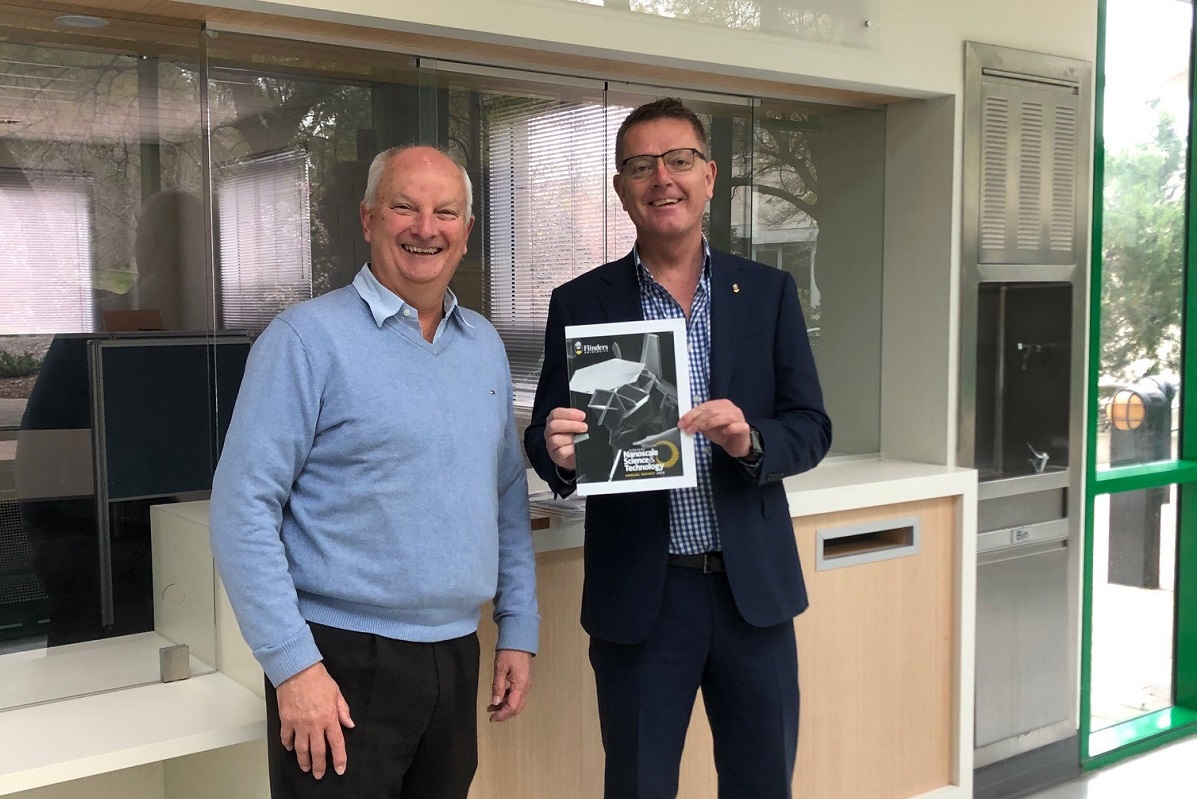
In its tenth year, our Institute of Nanoscale Science and Technology, led by Professor David Lewis, is a fantastic example of the coming-together of researchers that each bring with them unique but interrelated fields of study for far-reaching success.
Last week, I toured their recently refurbished facilities and was presented with their 2019 Annual Report. The report includes details of the team’s various achievements including the award of three new ARC Discovery Projects and eleven PhD completions. Well done to all involved.
Professor Lewis’s passion for the team’s work was obvious as he took me through a number of recent ground-breaking outputs including a nano-glue that enables waste wood to be repurposed into multi-use designer hardwood, and 2D printed plastic solar panels. With Flinders’ focus on sustainability, it is great to see these examples of how nanoscale science can be applied to real-world resource challenges.
The newly established Flinders Microscopy and Microanalysis Facility (FMMA), led by Professor Sarah Harmer, is a cutting-edge facility for microscopy, microanalysis, spectroscopy and imaging. The facility is awaiting the arrival of a Photoemission Electron Microscope (PEEM), that will be the first of its kind in Australia and only the seventh in the world.
PEEMs utilise high resolution imaging with photoemission spectroscopic analysis to profile stable or changing chemical compositions of material surfaces. The applications of this technology and others within the FMMA are multidisciplinary, ranging from minerals and defence to advanced materials and advanced manufacturing.
With these recent investments, the FMMA will become one of the nation’s leading microscopy and analysis hubs, a ‘one-stop-shop’, and is open to all scientists and researchers, as well as industry users, nationwide.
Without a doubt, the FMMA also has the potential to expand the Institute’s educational opportunities for our students. Whilst the instruments are maintained and often custom-built by highly skilled technicians, I witnessed during my visit honours and research students carrying out their projects on-site. The opportunity to undertake their studies in such a well-resourced Institute is a real benefit to our students and will produce outstanding graduates with highly sought-after skills.
To the leaders, researchers and students at the Institute, well done and thank you for your outstanding contributions toward the success of Flinders’ education and research.
Colin

